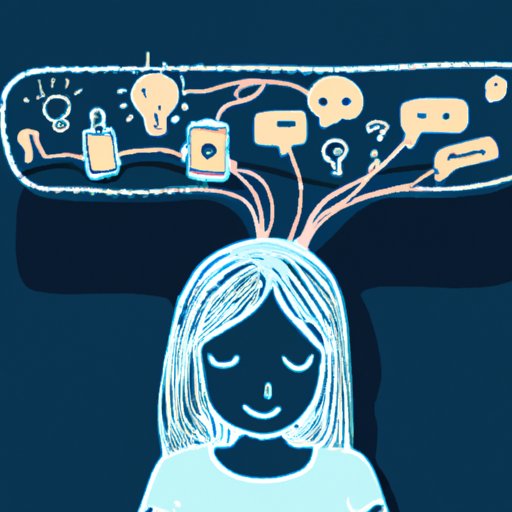
How to Calm Anxiety Attacks at Night: Tips and Techniques
Do you experience anxiety attacks at night? You’re not alone. Many people suffer from anxiety that disrupts their sleep and lowers their quality of life. Fortunately, there are ways to manage anxiety attacks and promote relaxation at bedtime. In this article, we’ll explore some simple and effective techniques to calm anxiety and improve your sleep.
Establish a Calming Bedtime Routine
One of the keys to reducing anxiety at bedtime is to establish a consistent and relaxing nighttime routine. When you have a set routine, your mind and body recognize that it’s time to wind down and prepare for sleep. Some activities that can be part of your routine include:
- Meditation: Spend a few minutes meditating before you sleep to calm your mind and reduce anxiety. Focus on your breath, and when your thoughts start to wander, gently guide them back to your breath.
- Deep Breathing: Practice deep breathing to slow your heart rate and promote relaxation. Breathe in slowly and deeply through your nose, hold for a count of five, then exhale slowly through your mouth.
- Stretching: Do some gentle stretches to release tension in your body and prepare for sleep. Focus on each muscle group, stretching slowly and holding each stretch for 15-30 seconds.
These activities can help you relax and calm your mind, preparing your body for a restful night’s sleep.
Create a Relaxing Sleep Environment
The environment you sleep in can have a big impact on your quality of sleep. To promote relaxation and reduce anxiety, create a sleep environment that is comfortable and calming. Here are some tips:
- Reduce noise: Use earplugs or a white noise machine to block out noise that may disrupt your sleep.
- Avoid screens: Turn off electronic devices at least 30 minutes before bedtime. The blue light emitted by screens can interfere with your sleep cycle and increase anxiety.
- Use aromatherapy: Try diffusing essential oils like lavender or chamomile to promote relaxation and reduce anxiety.
These simple steps can help you create a soothing sleep environment, promoting better sleep and less anxiety.
Write Down Anxious Thoughts Before Bed
If you find that anxious thoughts keep you awake at night, consider writing them down before you go to bed. This can help you process your emotions and release any tensions that may be keeping you awake. Here are some tips:
- Keep a journal: Write about your thoughts and feelings before bed. This can help you express your emotions and reduce anxiety.
- Create art: Consider drawing, painting, or doing some other form of creative expression to help you process your emotions.
- Talk to a partner or friend: Sometimes talking to someone you trust can help you release tensions and reduce anxiety at bedtime.
By processing your emotions before bed, you can enter a more relaxed and peaceful state, allowing you to sleep better and wake up feeling refreshed.
Use Calming Herbal Remedies
Natural remedies like valerian root and passionflower can help ease anxiety symptoms and promote relaxation. These remedies work by affecting the neurotransmitters in your brain that regulate mood and anxiety. However, it’s important to consult a healthcare provider before using any herbal remedies, as they may interact with other medications or health conditions. Here’s what you need to know:
- Valerian root: This herb is commonly used to promote relaxation and reduce anxiety symptoms. It can be taken as a capsule, tea, or tincture.
- Passionflower: This herb is known to promote relaxation by increasing the levels of GABA in your brain. It can be taken as a tea, tincture, or supplement.
If you are interested in using herbal remedies to manage anxiety symptoms, talk to your healthcare provider first to ensure that they are safe and effective for you.
Practice Mindfulness During An Anxiety Attack
Mindfulness is a powerful technique that can help you manage anxiety symptoms during an attack. Mindfulness involves paying attention to the present moment with a non-judgmental attitude. Here’s a simple mindfulness exercise you can try:
- Close your eyes: Find a comfortable seated position and close your eyes.
- Focus on your breath: Take a few deep breaths, then focus on your breath as it enters and leaves your body.
- Notice your thoughts: As your thoughts arise, simply notice them and let them pass without judgment.
- Focus on your senses: Bring your attention to your senses. Notice any sensations in your body or any sounds around you.
- End with gratitude: End your mindfulness exercise by focusing on something you are grateful for, such as a supportive friend or a comfortable bed.
Practicing mindfulness regularly can help you build resilience and better manage anxiety symptoms.
Conclusion
Anxiety attacks at night can be distressing and disruptive, but there are ways to manage these symptoms and promote relaxation. By establishing a calming bedtime routine, creating a soothing sleep environment, processing your emotions before bed, using herbal remedies, and practicing mindfulness, you can reduce anxiety and sleep better. Remember to consult your healthcare provider before using any herbal remedies, and don’t hesitate to reach out for support if you need it. By taking proactive steps to manage anxiety, you can improve your sleep and your overall sense of well-being.




